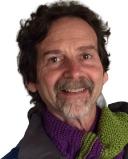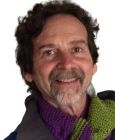Spirituality
Becoming Awed, Part 1
An interview with Experience Life Magazine
Posted September 11, 2016
Experience Life (EL) | What defines awe?
Kirk Schneider | It is technically defined as the commingling of dread, veneration, and wonder. But I summarize it as the humility and wonder or sense of adventure toward living. Awe is also the capacity to be deeply moved and to experience the fuller ranges of being alive. For me, these many and contrasting dimensions make awe a supreme concept of transcendental experience, which too often gets reduced to one-dimensional terms like blessedness and bliss, but full living in my view has daunting as well as exalting qualities. The trick is to feel free enough to experience the intensity and poignancy of both.
EL | What’s challenging and difficult about awe? Might we shy away from awe-inducing experiences, consciously or unconsciously?
KS | Awe is challenging because it shifts us outside the box of the routine and familiar, and that’s always a bit jarring — as much as it can also be quite exhilarating and liberating. Certainly there is an awe phobia that goes along with awe depletion in our society because our socioeconomic system stands in almost direct contrast to awe cultivation.
As long as we continue to prize the quick fix, the efficiency and machine model for living — speed, instant results, and appearance and packaging — we’re going to remain awe resistant and awe avoidant because slowing down, pausing, appreciating the paradoxes of living — such as our fragility, boldness, vulnerability, and a profound appreciation for life — don’t often go along with a “maximize profits” world. So yes, I think we shy away from the sense of awe both consciously and unwittingly to the degree we fail to question or reform our awe-sapping ways of life.
EL | In what ways, precisely, does a sense of awe (or an awe-based consciousness) have a positive impact on us personally? What traits does it foster? How does it affect our lives positively (transformatively) if we look at things as “awesome” and negatively if we look at them as “awe-ful”?
KS | There is a trend these days to reduce awe, like so many other energizing emotions, to changes in biological markers, such enhancements of the immune system or to specific states of well-being.
These are important and helpful studies so far as they go, but they tend to imply that the acquisition of awe is like the acquisition of a drug to achieve a desired targeted effect. In some sense it turns awe into a commodity that can achieve specific health-producing effects, which I believe it can, and that is very important to know, particularly because it has been such an understudied and underappreciated phenomenon.
But in my view, awe is much more than a “tool” that can be drawn upon for a desired effect; it’s a way of being, an attitude toward moment-to-moment living — to the degree possible — that is a result of a life deeply lived.
I don’t want to give people the impression that awe is yet another quick fix that can be “used” when handy or necessary while the rest of its implications, for example, for a whole new way of living, a reformed society — at the level of childrearing, education, ecology, religion and spirituality, and even legislative and diplomatic deliberation — are completely overlooked. Awe is the basis for a new moral and ethical identity in the development of human organization and consciousness, and that is its most important legacy. It could well help to save the human species.
EL | Are there any unexpected areas where it can have an impact?
KS | I already mentioned childrearing, the educational setting, the work setting, the environmental setting, the religious and spiritual settings, and the political-deliberative settings. These may all be surprising areas of transformation through awe-based practices. Moreover, I think the cultivation of the sense of awe and the bigger picture of living (that does not “end” in dogma but in discovery) is integral to addressing depression and many other psycho-spiritual disturbances that are basically about overidentification with narrow and self-devaluing aspects of ourselves and life. Real-life examples of the healing power of awe are the resilient lives of Stephen Hawking, despite horrible debilitating illness, and Viktor Frankl, who survived Nazi death camps.
Interview by Heidi Wachter, Staff Writer, Experience Life Magazine


